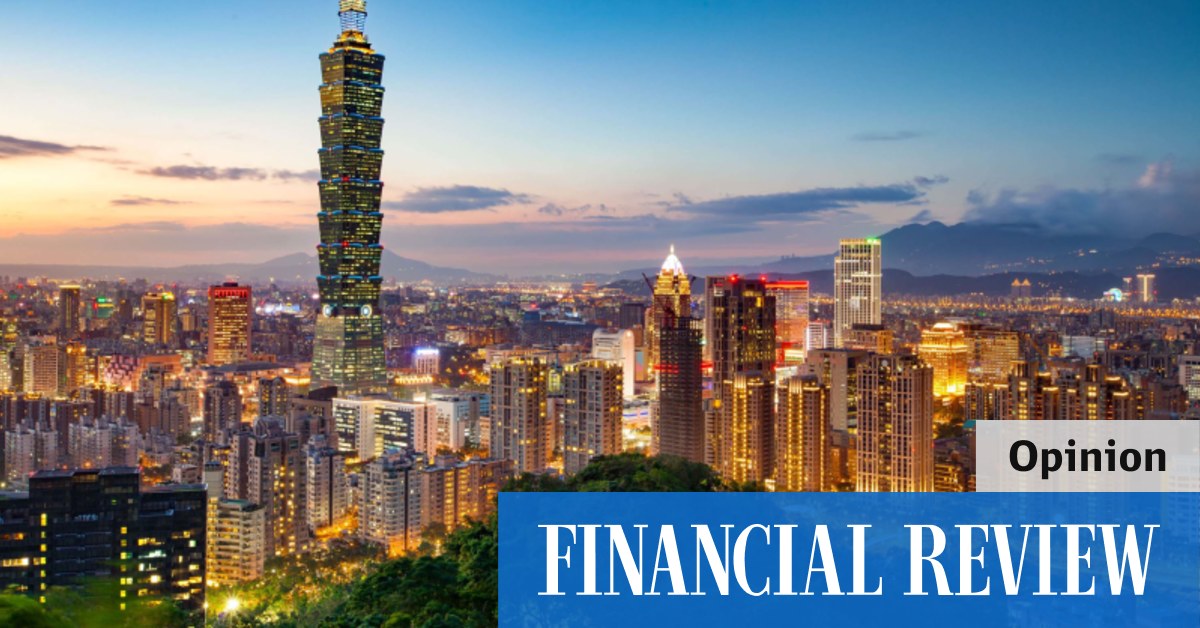Defense Minister Richard Marles pointed to China’s violation of the UN-sanctioned law of the sea and to Australia’s long-standing commitment to upholding freedom of navigation and commerce in the region.
Neither Wong nor Marles questioned China’s claim to the territories of Taiwan – the core claim underpinning Beijing’s determination to take the island by force.
This is because Australia recognized the Beijing government as the sole legitimate government of China in 1972, and as a condition of recognition declined to recognize Taiwan as a sovereign state.
Like all serious players, we keep our word. In mounting limited objections to China’s behaviour, Wong and Marles echoed the positions of the EU, US, and all members of the G7 that there has been no change in respective One China policies or basic positions on Taiwan, despite Beijing’s claims to the contrary. We are sticking to our side of the deal.
In the 1970s, those agreements focused on territory and said little about people. What do people in Taiwan want?
Surveys show a pragmatic preference for retaining the status quo over seeking formal independence, because under the status quo people enjoy civil liberties, rule of law, political rights, economic autonomy, and a way of life won through decades of strife and struggle on Taiwan.
Seeking formal independence would place those rights and liberties at risk, in face of Beijing’s threats of violent retaliation. But so would voluntary unification with the People’s Republic.
Beijing’s treatment of Hong Kong in 2020 shattered any remaining illusions about the fate of Taiwan under Beijing’s One Country Two Systems model of inclusion. On Xi’s new model, the people of Taiwan would be “re-educated” – China’s ambassador to France revealed this week – in the style of Mao Zedong’s gulags or Xi’s mass internment camps.
In acknowledging the One China position, Australia never conceded Beijing’s right to coerce, corral and ‘re-educate’ the people of Taiwan.
Here’s the rub. The CCP says it is prepared to pay any price to fulfill its historical mission of unification with Taiwan, but the one price it won’t consider is the one it would cost to incorporate the territory peacefully: allow people in China to enjoy the same rights and liberties that people have in Taiwan.
The upshot is that in place of reforming his own country, Xi is preparing to take the island by force against the wishes of the people of Taiwan.
The message conveyed by his ballistic missiles is that Beijing could fly right over the heads of people on Taiwan and lay claim to their lands without giving them a passing thought.
In effect, China now seeks “vacant possession” of the island, in the memorable phrase of journalist Rowan Callick, and Australia never signed on to that.
Australia did not sign on to a lot of things that China does as a matter of course in the new era of Xi.
We did not promise to remain silent on Tibet, where the Communist Party is working energetically to erase the languages, cultures, religion, and identities of local communities to retain a stranglehold on their ancestral territories.
Australia never agreed to Beijing perpetrating cultural genocide against Uyghurs and other minorities to maintain its grip on their historical territories in Xinjiang.
We did not sign on to the crackdown in Hong Kong that put an end to rule of law, civil society and freedom of speech and assembly once Beijing decided to extend direct control over that territory as well.
In acknowledging Beijing’s One China position, Australia never conceded Beijing’s right to coerce, corral and “re-educate” the people of Taiwan. In Beijing’s eyes, territory comes before people, and that was never part of the deal.
There is much that can be done to help the people of Taiwan without breaking our word.
Canberra can accelerate negotiations on bilateral economic agreements with Taipei and support its inclusion in multilateral economic agreements. We can actively support its participation in international organisations, including key agencies of the World Health Organisation.
Federal and state governments should give added encouragement to cultural and educational exchanges with Taiwan.
Groups of Australians can reach out to people in Taiwan through their church groups, and by way of community and business associations, trade unions and local governments, to reassure their counterparts in Taiwan that they are not alone in confronting intimidation and interference from China’s Communist Party .
Through travel and everyday communications, we can let the people of Taiwan know we have their backs.
Australians have as much reason to be wary of China’s communist government as people in Taiwan, because China’s communists have shown they do not care about people anywhere – not in China, not in Taiwan, not in Australia.
That much we knew before Pelosi visited Taiwan.
John Fitzgerald is emeritus professor at Swinburne University of Technology.
